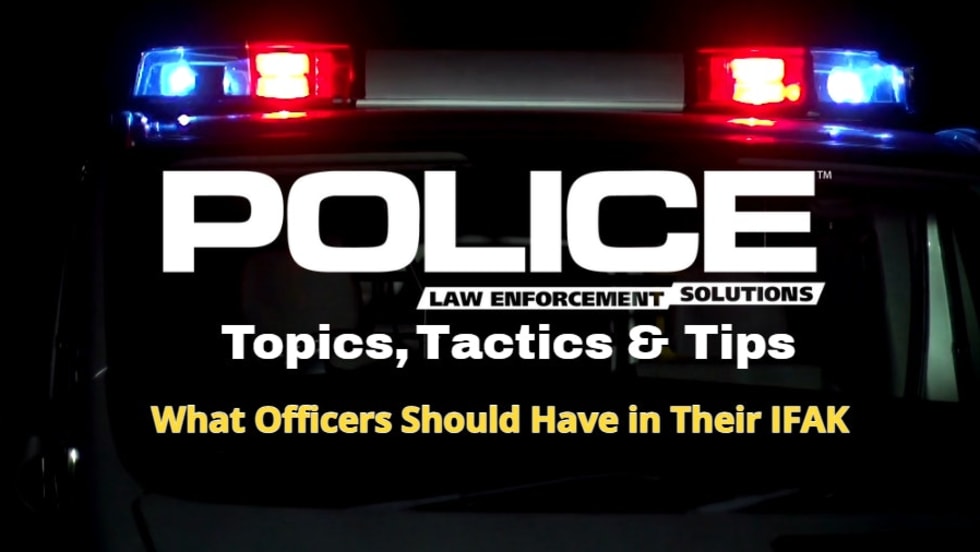Supervisors must be specific when they communicate, or expect to pay the price for not doing so. I have seen such situations blow up in many a supervisor's face, including my own. Specificity is important for three main reasons: to ensure the success of the task, to eliminate any questionable officer issues, and in case disciplinary actions become required.
In order to ensure successful task completion, your instructions must include all the key elements needed for success. For example, "I need a list of at least 10 handgun training topics, written in memo format, by Friday, Feb. 6, 2015, no later than 1300." This example covers what, how, and when. The only way anyone can fail in this assignment is by failing to provide one of the elements.
But it's OK to have a broader focus as long as your instructions establish guidelines. "I need you to come up with eight hours of handgun training focusing on firing from cover, malfunctions drills, and reloading under stress" is a good example. Here, the person is free to design any drill he or she likes, as long as it stays within your guidelines.
I also recommend any additional instructions that might help you manage your task. Stating, "I need a lesson plan by Wednesday, Feb. 6, 2015, no later than 1600, and a walk-through of the drills at the range on Thursday, Feb. 7, 2015, at 0900" works well. Adding additional instructions helps keep you on top of the task and check progress. But you may be accused of micromanaging.
Having a hand in what you are trying to accomplish is part of leadership. Trying to control every aspect of a task is not. Being specific is not micromanaging.
But be advised that questionable officers take a mile when you give them an inch. They are masters of deflection and take everything you say literally. These subordinates teach you the hard way that words have meaning so you better pick and choose wisely. At the first sign of trouble, these officers will fall back to, "But I did what you said." Of course your next comment will most likely be, "You know what I meant!"
The counter to "You know what I meant" is often, "I only know what you said." All supervisors will experience some version of this at some point in their careers. You learn it becomes a framework for dodging responsibility. If you weren't specific enough and left wiggle room in your instructions, you don't have a leg to stand on if things don't go as expected.
For example, we use "ASAP" to mean "right now." It actually means "as soon as possible and not before." A crafty manipulator who misses a deadline might tell you he was busy and that it wasn't possible. Instead of using "ASAP," be more specific and nail down a deadline. No one can argue with "have it done by 1500." Your subordinate still might miss the mark, but she can't use your own words against you. Try to include, "If I can help you in any way or you have any questions please talk with me." This phrase helps close the door on most excuses.
In person, I like to have my instructions repeated back to me. This helps me check for understanding. If they can't put it in their own words, you may have to alter your instructions. Don't ever assume someone understands. Confirm they do.
As a young sergeant, I counseled one of my subordinates during a difficult child custody battle. I was concerned because anything to do with children is wrought with emotion and tends to cloud a person's judgment. If not handled in the right way, these circumstances drift toward discipline issues. I thought I had made it clear when I stated, "Don't do anything stupid."
Long story short, he didn't heed any of my warnings and found himself in trouble; the least of which included insubordination. After the dust settled, I was advised that since I gave him no specific orders, there was not enough grounds to cite him for insubordination. I learned early that saying something like "Don't do anything stupid," is not specific enough and therefore useless.
Communicating as a supervisor either in person or in writing is more involved than you may think. Not being specific enough will often cost you the very things you are trying to accomplish. At the end of the day, mission accomplishment is a supervisor's responsibility. Being specific is a very big part of that.
Amaury Murgado is a special operations lieutenant with the Osceola County (Fla.) Sheriff's Office. He is a retired master sergeant from the Army Reserve, has over 28 years of law enforcement experience, and has been a lifelong student of martial arts.












